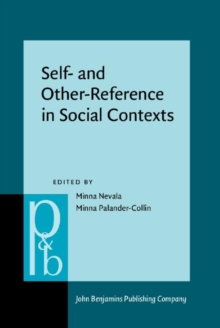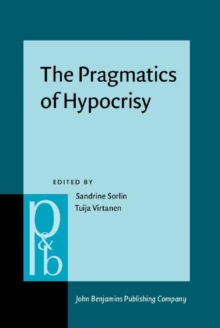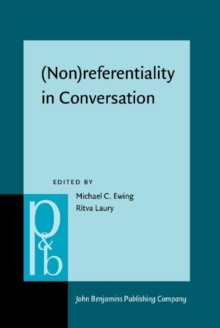
Beyond Misunderstanding : Linguistic analyses of intercultural communication PDF
Edited by Buhrig Kristin Buhrig, Thije Jan D. ten Thije
Part of the Pragmatics & Beyond New Series series
Description
This book challenges two tacit presumptions in the field of intercultural communication research. Firstly, misunderstandings can frequently be found in intercultural communication, although, one could not claim that intercultural communication is constituted by misunderstandings alone. This volume shows how new perspectives on linguistic analyses of intercultural communication go beyond the analysis of misunderstanding. Secondly, intercultural communication is not solely constituted by the fact that individuals from different cultural groups interact. Each contribution of this volume analyses to what extent instances of discourse are institutionally and/or interculturally determined. These linguistic reflections involve different theoretical frameworks, e.g. functional grammar, systemic functional linguistics, functional pragmatics, rhetorical conversation analysis, ethno-methodological conversation analysis, linguistic anthropology and a critical discourse approach. As the contributions focus on the discourse of genetic counseling, gate-keeping discourse, international team co-operation, international business communication, workplace discourse, internet communication, and lamentation discourse, the book exemplifies that the analysis of intercultural communication is organized in response to social needs and, therefore, may contribute to the social justification of linguistics.
Information
-
Download - Immediately Available
- Format:PDF
- Pages:345 pages
- Publisher:John Benjamins Publishing Company
- Publication Date:09/05/2006
- Category:
- ISBN:9789027293664
Information
-
Download - Immediately Available
- Format:PDF
- Pages:345 pages
- Publisher:John Benjamins Publishing Company
- Publication Date:09/05/2006
- Category:
- ISBN:9789027293664










